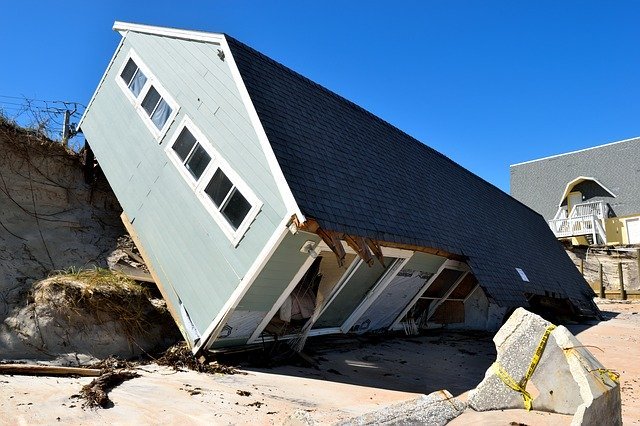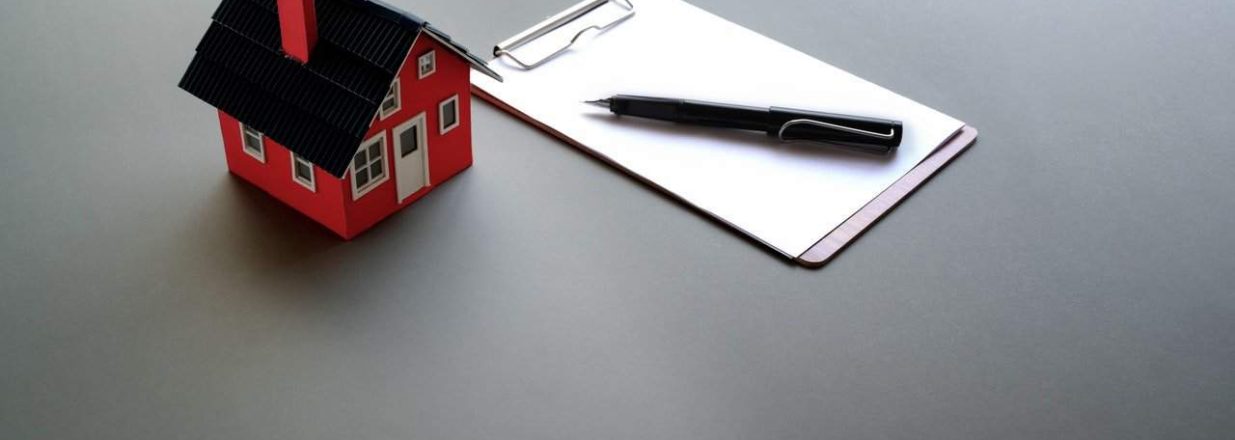Points Panda has partnered with a variety of financial companies including CreditCards.com for our coverage of credit card products. Points Panda and CreditCards.com may receive a commission from card issuers. Opinions, reviews, analyses & recommendations are the author’s alone, and have not been reviewed, endorsed or approved by any of these entities. Terms apply to American Express benefits and offers. Enrollment may be required for select American Express benefits and offers. Visit americanexpress.com to learn more.
The content on this page is accurate as of the posting date; however, some of the offers mentioned may have expired. For more information please read our full Advertiser Disclosure.
Let’s discuss the basics so you make the best decision for you and your home
During the Coronavirus pandemic, we are spending much more time in our homes than we are used to. As with everything else, many are wondering what is the situation with home insurance during COVID-19.
It is true that our home usually brings us feelings of serenity and security. But with the unemployment rate skyrocketing to levels comparable with the Great Depression of the 1930s, it is definitely a time of financial uncertainty.
Obviously, during such times, nobody wants to have excess expenses. For example, many individuals considered reducing or suspending their car insurance while they don’t use their vehicles. Others have the same thoughts and feelings about home insurance.
While this may initially seem like a good idea, don’t rush into making decisions you could regret. Depending on your situation you may even have to get some additional home insurance coverage during the Coronavirus pandemic.
Before we step into that, let’s first discuss the basics so you make the best decision for you and your home.
What is Home Insurance?
Home insurance, like any other type of insurance, is a contract between you and an insurance company with certain arrangements. The main arrangement of the contract is the following.
You agree to pay a predetermined amount to the insurance company on a monthly, quarterly, or yearly basis, depending on your contract terms. In exchange, the insurance company guarantees to pay out a reimbursement in case certain events occur.
With home insurance, you are covered against events that are directly or indirectly damaging your anything on your property. Like your house, your personal property that is in the house, any additional buildings that are on the territory of your property, and others. But more on that later.
When a qualifying event described in the insurance policy takes place you have the right to file a claim. When the claim is approved the insurance company is required to disburse funds and cover your losses.
The amount of coverage you have is again settled beforehand, in the contract itself. That is why it is important to read the terms carefully and know exactly what you are covered from and what you are not. Another important aspect of home insurance is to know your deductible.
A deductible is an amount you have to pay to actually start the process of filing a claim. Essentially it is an out of pocket cost you have to be ready to pay if anything happens.
When your deductible is higher you can enjoy lower premiums. Generally speaking, it is a good idea to have a higher deductible if you have financial stability and can afford a higher out of pocket charge.
Also, you should know that the chances of an incident to happen are low.
Of course, that depends on many factors. Like the area you live in, your lifestyle, and many more.
Home insurance deductible is often referred to as home insurance excess.
Regardless of the common belief, home insurance excess isn’t an excessive amount of coverage you have for your home insurance. In other words you are not over-insured.
In fact, the opposite is much more likely.
That is why you need to be familiar with another important part of home insurance. The so called home insurance liability limit. Essentially, that is the maximum amount of your coverage.
Let’s say your liability limit is $50,000. Then something happens and your house is leveled. The cost to rebuild it is $80,000. Then you are underinsured.
That is why you have to consider your liability limit before purchasing home insurance. If your house is more expensive, opt for a higher liability limit.
What does Home Insurance Cover?
As the name suggests, home insurance covers your home in case of damage or loss. However, many don’t know that it isn’t only your home that is protected.
There are actually 8 different types of homeowners insurance. Each adjusted to certain types of properties and to meet specific coverage needs.
The most popular type of homeowner insurance policy is the HO-3. It covers your home and attached or unattached buildings, it protects your personal property and also includes personal liability protection.
Another common benefit included in home insurance policy is also covered by the HO-3 insurance policy. That is additional living expenses and medical payments. For what you may ask? Well, if anything happens to you while you are in the house, there is a pretty big chance you get hurt.
Additional living expenses cover your stay on another property while your house is repaired or rebuilt. So your hotel room and food expenses will be covered for that period. And medical payments help you recover from the injury.
Another common type of home insurance policy is the HO-5 policy. Hardly arguable the HO-5 is usually the best choice if you want to have the most protection possible. It is considered the most comprehensive type of home insurance among all others.
Basically, all of the coverage you have for an HO-3 is included in HO-5. But also much more. For example you have additional living expenses and medical payments not only for yourself, but for others as well.
The HO-5 also has higher liability limits for personal property. Some insurance epolicy may set a limit for that. For example you may have expensive jewelry that is worth $1500 piece but the standard home insurance liability limit for that is set to $500. Meaning the insurance company will only pay out $500 if your jewelry gets stolen.
With an HO-5 that isn’t a problem. Also, an HO-5 policy protects both your home and your personal belongings under the so-called open perils. That means you are covered against occasions that aren’t listed specifically in your policy as well.
Actually, the only things you won’t be covered against are the events specifically excluded from your policy. That is a great way to see if you need any specific coverage and purchase it separately if you have to.
For example, if you live in an area with high seismic activity, you should opt for earth movement protection, as it is typically excluded from almost all home insurance policies. Including HO-5 policies.
Of course, you can review all other types of home insurance policies and try to figure out on your own which home insurance policy is best for you.
Unfortunately, this can be a pretty tedious process. Luckily you can visit home insurance websites like this and click just a few buttons to discover what you actually need.
Still, there are some things (despite your house) that almost every home insurance policy under the sun covers. Here are they:
1. Attached/ Unattached buildings
Despite your house – the main building, the attached or unattached structures are also protected. In simple words everything that is built on the land of your property and is considered part of it. Your garage or shed, for instance.
2. Personal property
It is not only the facade that is covered. Your personal belongings which reside in the building itself are also protected by most policies. In some instances, your stuff is protected even if it’s stolen or damaged out of your home.
3. Personal liability protection
That is something people often ignore. Ironically that is one of the greatest features of home insurance. By owning home insurance you are actually covered if somebody gets hurt while on your property and files a lawsuit.
And don’t underestimate the cost of that. On average, personal injury settlements cost 52,900, with some being much higher.
What else does home insurance cover?
You might be wondering whether there is anything else that home insurance covers. Congratulations. Most home insurance policies get you covered against other stuff as well. Including:
- Storms and hails
- Lightning strikes, fire, and explosions
- Vandalism and Theft
- Falling object (trees, etc.)
- Building subsidence
- Flood as the result of water outpour (e.g. if you forget your sink on)
Nevertheless, there are some common occasions which you are typically not covered against. So if you live in an area with lots of natural disasters, you might want to think about adding additional riders to your home insurance. Or buying a separate insurance policy just for that. These include:
- Floods
- Landslides
- Earthquakes
- Infestation
- Damage due to terrorism, war, nuclear attack
- Damage due to lack of maintenance (mold, tear)

Sadly, natural disasters haven’t stopped since the pandemic began. On the contrary, this year they seem to be even more. Remember what happened in Australia. And whether you are at home or not, there is not much you can do against mother nature.
So you better have sufficient insurance. Anyways that is not the only additional homeowners insurance during COVID 19 you might need.
How to get Home Insurance
Getting a home insurance policy is not as hard as it may seem. There are actually plenty of insurance companies out there that offer different types of home insurance.
Generally, you should have an idea of the type of policy and amount of coverage you are opting for.
You can go the old fashioned way and search for a suitable home insurance going from provider to provider. Ringing the phone and having long conversations just to figure out that at the end, it is not what you are looking for.
Still, you might be able to find a good policy in that way. But it will take much time and effort. For that reason, most people prefer to compare home insurance quotes online and choose the best.
It’s fast , simple and doesn’t cost anything. As a rule of thumb. To save on home insurance you might want to consider bundling it with car insurance from the same provider.
Once you choose your home insurance company you can contact them and ask if they will make a discount if you buy car insurance with them too. It is not uncommon to get discounts up to 30% in that way.
Home Insurance During COVID-19
The first thing you might want to consider is speaking with the home insurance company you currently have an active policy with.
You can definitely inquire what your current policy covers and ask them to exclude some things in exchange for a rate drop. For example, you probably won’t need protection against theft or vandalism while you are at home.
Furthermore, if you decide there is less risk for anything to happen while you are at home you can increase your deductible temporarily. Increasing the deductible always means a cheaper price for your insurance policy.
Also, some home insurance companies may be more lenient than usual with payment delays. For instance, Liberty Mutual waived all late fees from March 23 to June 15 in response to COVID 19. They also provided some refunds and payment flexibility to aid their customers in these unprecedented times.
Other insurance companies are doing the same. There is a big chance your insurance provider can offer some temporary options to aid while you are struggling financially.
Still, if you are not happy with your insurer and your current home insurance you can always see some home insurance quotes and pick a better deal for yourself. Dropping coverage, however, is not the only thing you should consider.
If you are currently working from home, which is highly likely, you might want to think about getting some additional coverage.
For example, there is a minuscule chance your home insurance covers you against cyber theft or data loss. At the same time, home wireless networks are easier to hack than you think.
So it is wise to purchase additional coverage against cyber theft or data loss, unless you want to risk losing your job or receiving a huge penalty for data and intellectual property infringement.
Also, if you or somebody else from your family brought a work laptop or any other expensive equipment you might want to insure it as well. Or at least ask your employer if they have it insured. Otherwise you will have to pay the bill at the end if anything happens to these items.
The most important thing is the following. You still need home insurance. It is not very wise to drop all of your coverage despite the Coronavirus situation. Be smart and exclude coverage only if you don’t need it.
Also if you are struggling financially, let your insurer know. They will probably understand and might be able to offer you a temporary payment plan which you can actually afford.
Advertiser Disclosure
PointsPanda Deal of the Week!
Looking for the best flight deals? Each week we'll send you updates with the best deals on flights and hotels both using points and cash.






Responses are not provided or commissioned by the bank advertiser. Responses have not been reviewed, approved or otherwise endorsed by the bank advertiser. It is not the bank advertiser’s responsibility to ensure all posts and/or questions are answered.